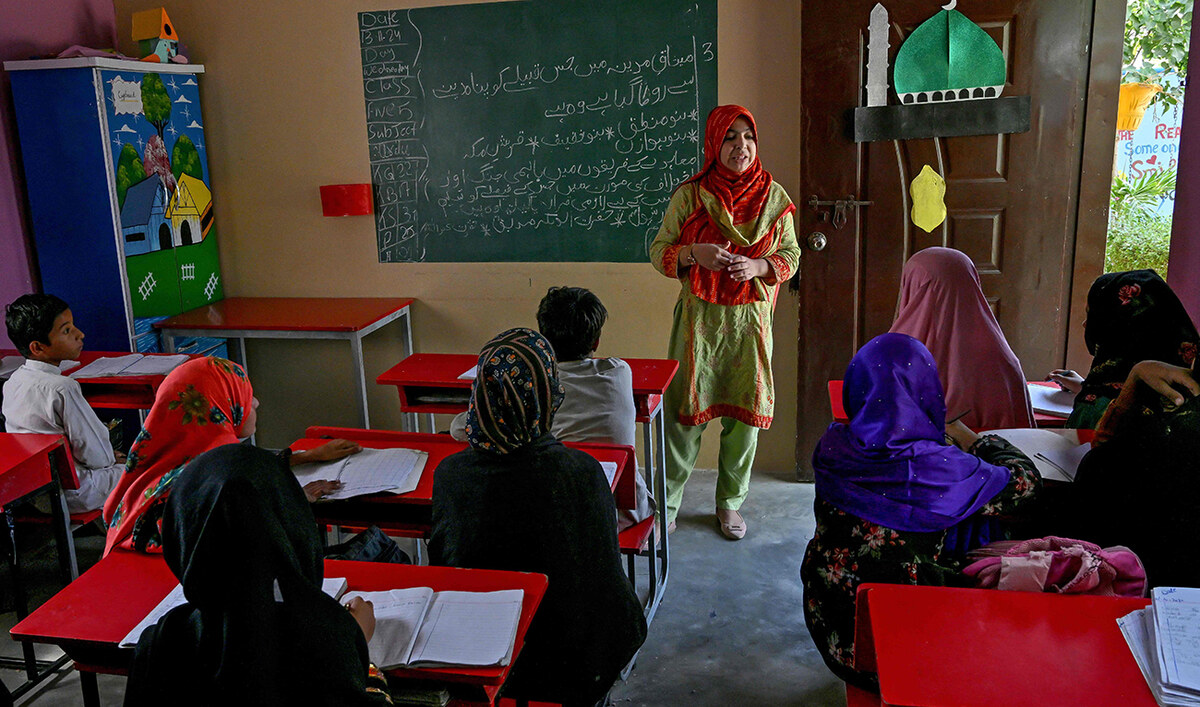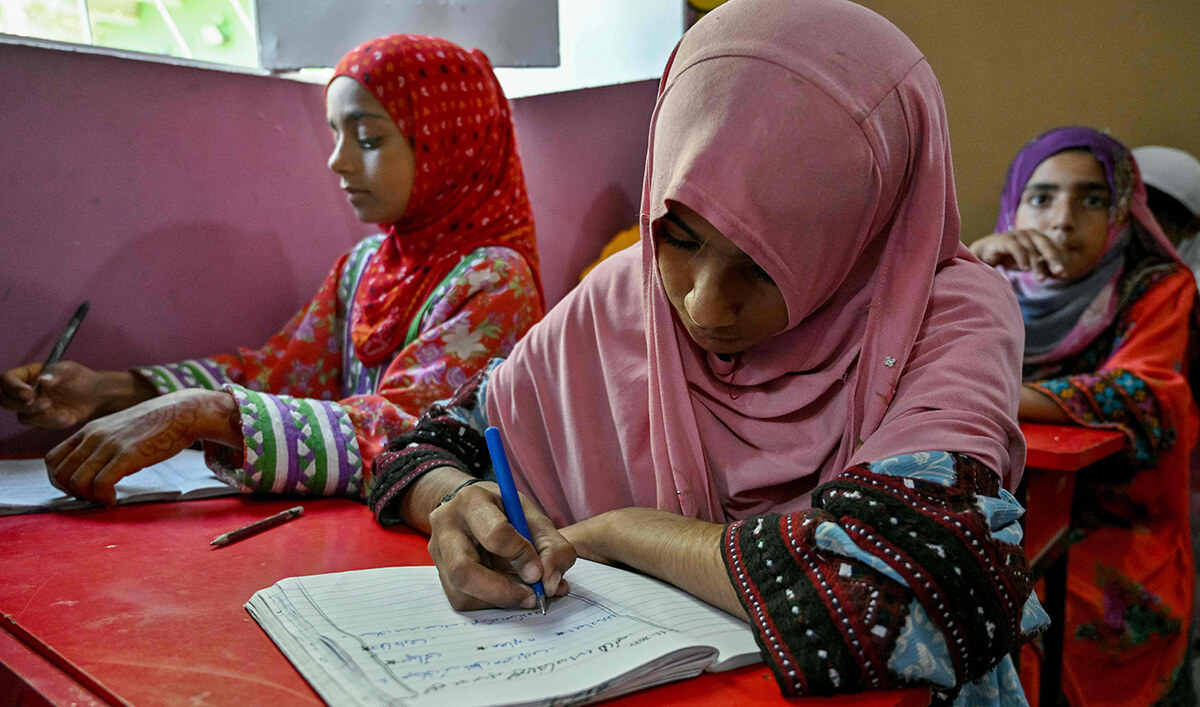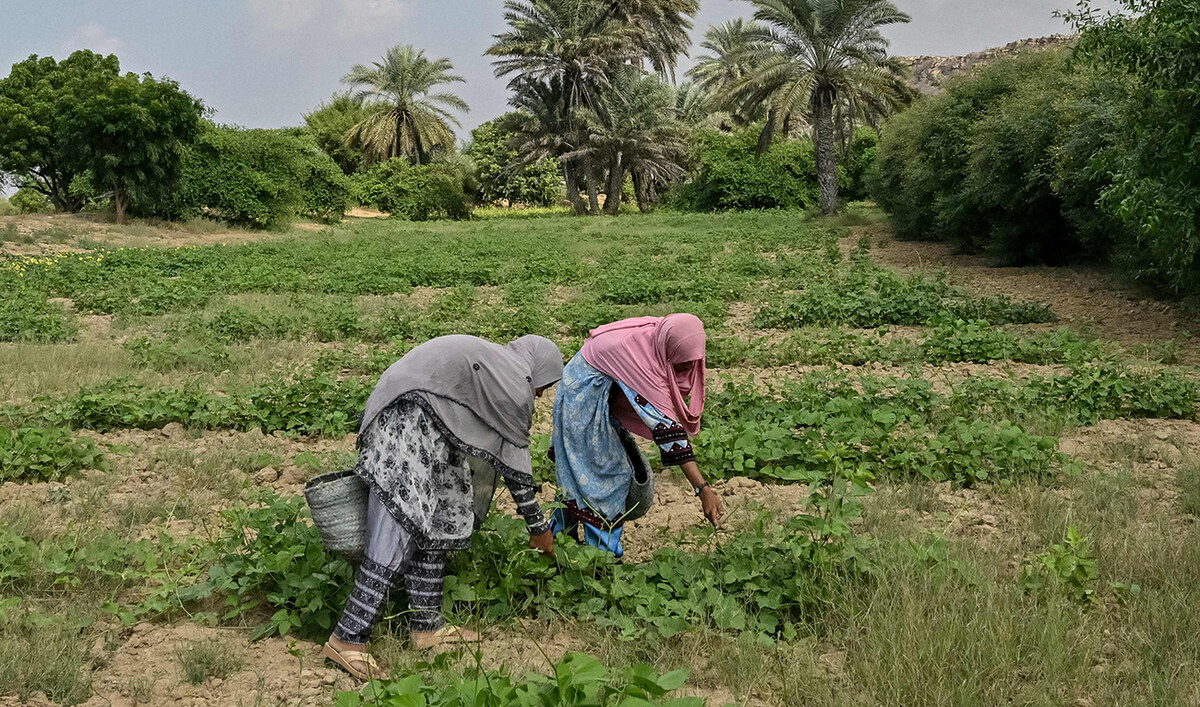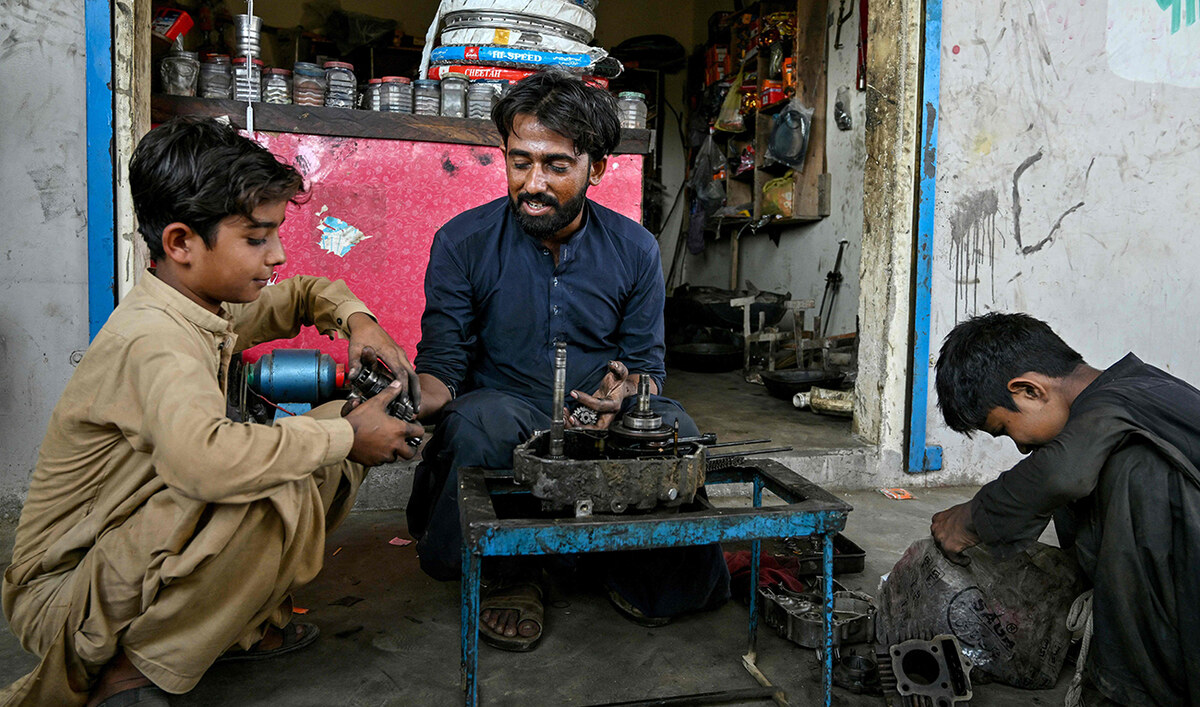ISLAMABAD: Management and vendors at the three government-approved livestock markets in the Pakistani capital of Islamabad on Friday said the city’s administration had not communicated any COVID-related guidelines this year, which was why people were neither wearing face masks nor maintaining a safe distance during sale and purchase of animals.
Pakistan lifted almost all coronavirus restrictions after a significant decline in the number of infections since January. However, the South Asian country has witnessed a spike in infections in the last few weeks.
In its guidelines for Eid Al-Adha, the country’s main pandemic response body, the National Command and Operations Center (NCOC), has urged people to wear masks and observe social distancing in livestock markets.
But hundreds of buyers and sellers in Islamabad’s Lehtrar Road, Sangjani and I-15 livestock markets were seen closely interacting with each other for the purchase of sacrificial animals, despite the increase in coronavirus infections.
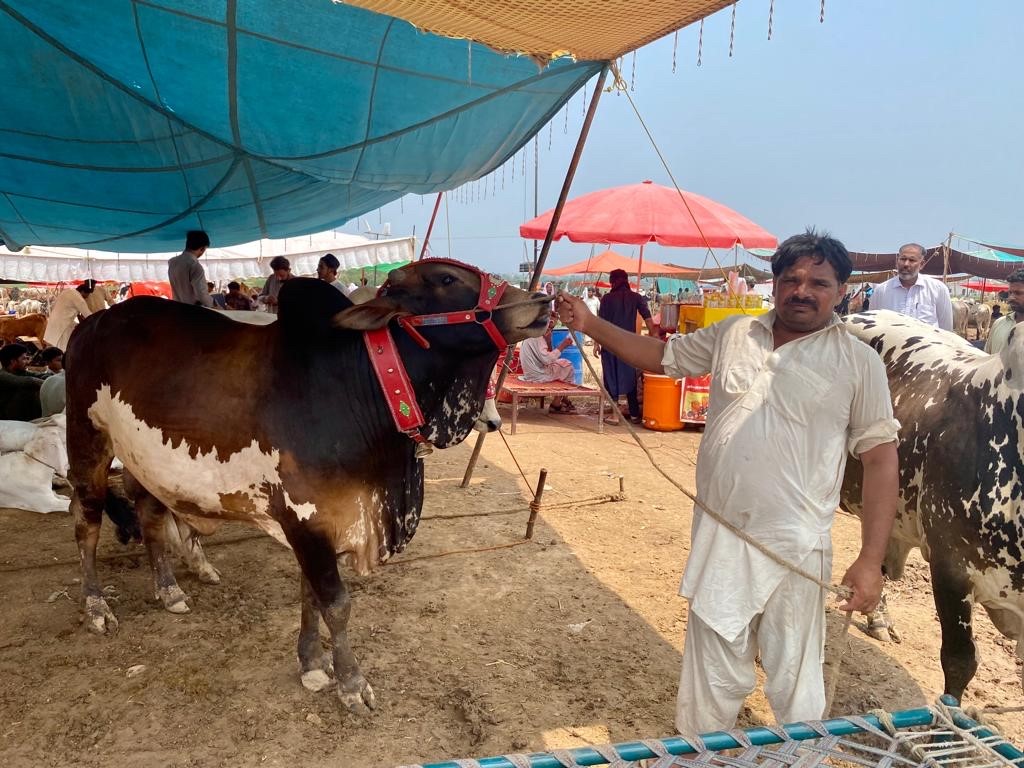
A seller shows his animals to visitors at the Lehtrar Road market in Islamabad, Pakistan on July 7, 2022. (AN Photo)
“No one asked us to check visitors for face masks or vaccination certificates this year,” Hameed Ullah Khan, a manager at the Lehtrar Road market, told Arab News.
“There was not a single case of COVID-19 reported from our market so far. We have a basic dispensary for sellers and an animal doctor for medical aid.”
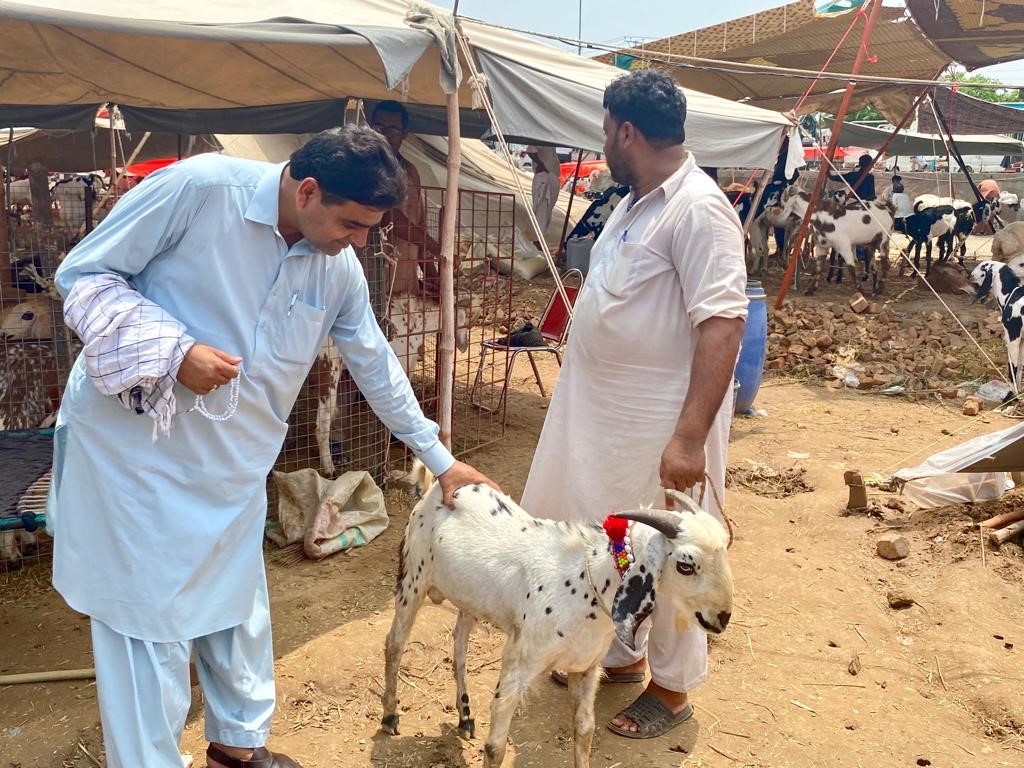
A visitor buys a sacrificial animal at the Sangjani animal market in Islamabad, Pakistan on July 7, 2022. (AN Photo)
Bakhtiar Ali, who came to buy animals at a market in Sangjani area, said he was not aware of the new guidelines, wherein the government advised people to start wearing masks again.
“Previously, they used to announce via media and people followed the guidelines, but I haven’t seen any message this time,” he told Arab News. “I think the government itself is not taking the situation very seriously then why the general public will wear masks and follow guidelines.”
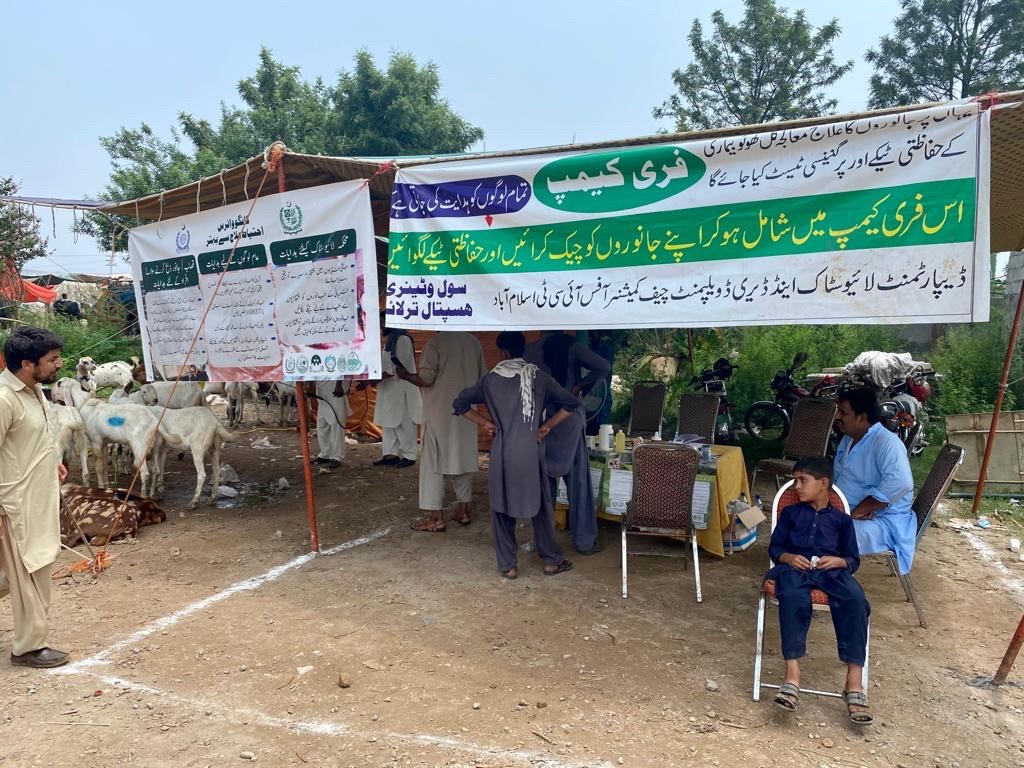
Pictured is a temporary animal dispensary at the Lehtrar Road market in Islamabad, Pakistan on July 7, 2022. (AN Photo)
Shehryar Arif Khan, an additional deputy commissioner in Islamabad, told Arab News they were “encouraging” people to wear masks and maintain social distancing, but the administration did not impose any penalties as the coronavirus situation in Islamabad was not like how it had been in the previous years.
“We have not enforced penalties so far because the ratio of COVID-19 infections in Islamabad is comparatively very low,” he said, adding officials at markets urged visitors to wear masks for their own safety.
Muhammad Junaid, a seller at the Lehtrar Road market, said it was very humid and impossible for them to wear masks.
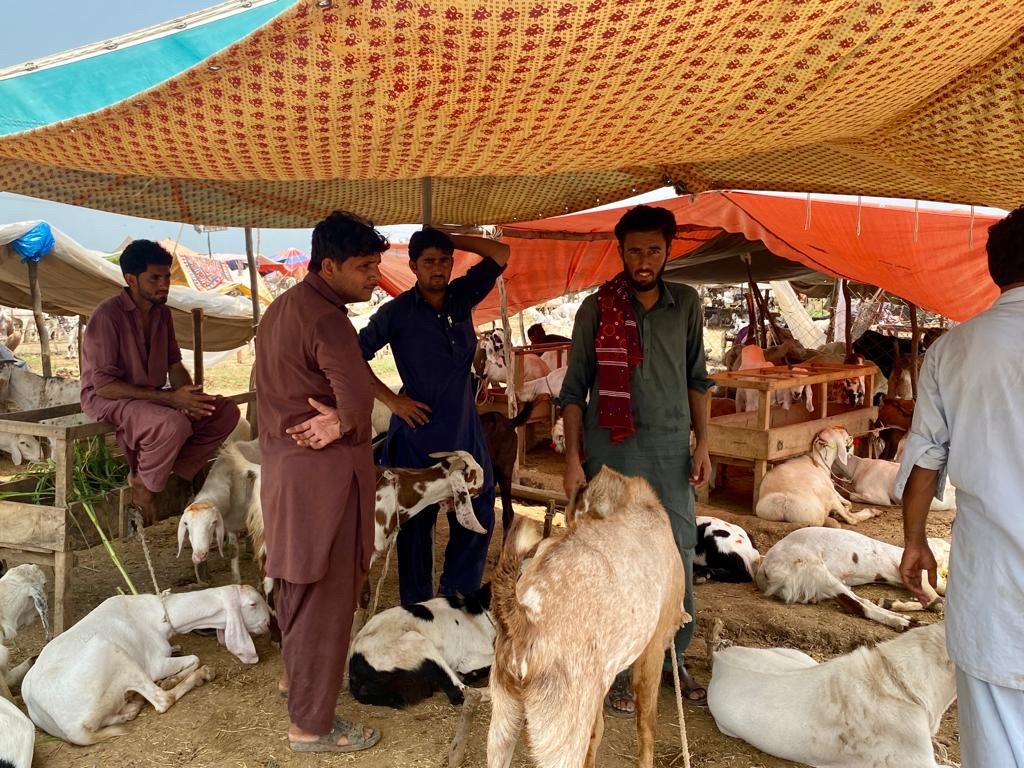
Visitors buy sacrificial animals at the Sangjani animal market in Islamabad, Pakistan on July 7, 2022. (AN Photo)
“Last year, they were checking for masks even then people did not wear it as it is impossible to breathe with a mask on under such hot and humid conditions,” he said, adding no one inquired them about the masks this year.
Aslam Abbasi, a buyer who was visiting with his friends, said people were not wearing masks, despite another rise in COVID-19 infections.
“I am not wearing mask like all others around me as it is the duty of the administration to enforce the guideline and I think they have not decided it so far,” he said.
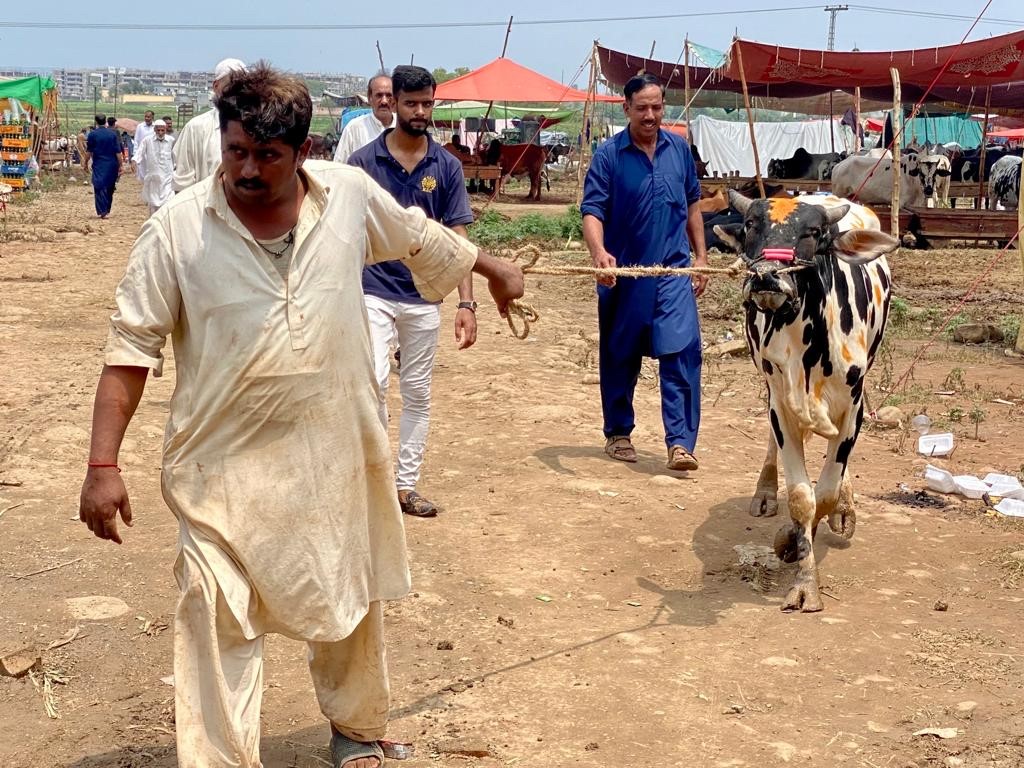
A seller shows his goat to a customer at the Lehtrar Road animal market in Islamabad, Pakistan on July 7, 2022. (AN Photo)
Officials at the National Institute of Health (NIH) on Friday said there has been a risk of a sixth COVID-19 wave in Pakistan due to an increase in new infections in recent weeks, but the government was taking necessary steps to keep the situation “under control.”
The South Asian nation recorded a daily positivity ratio of 3.28 percent on Friday with 693 positive cases and zero deaths. The daily positivity rate registered a sharp decline from the peak 13 percent on January 22 to 0.37 percent on April 12, according to official data, but started rising again in June.














